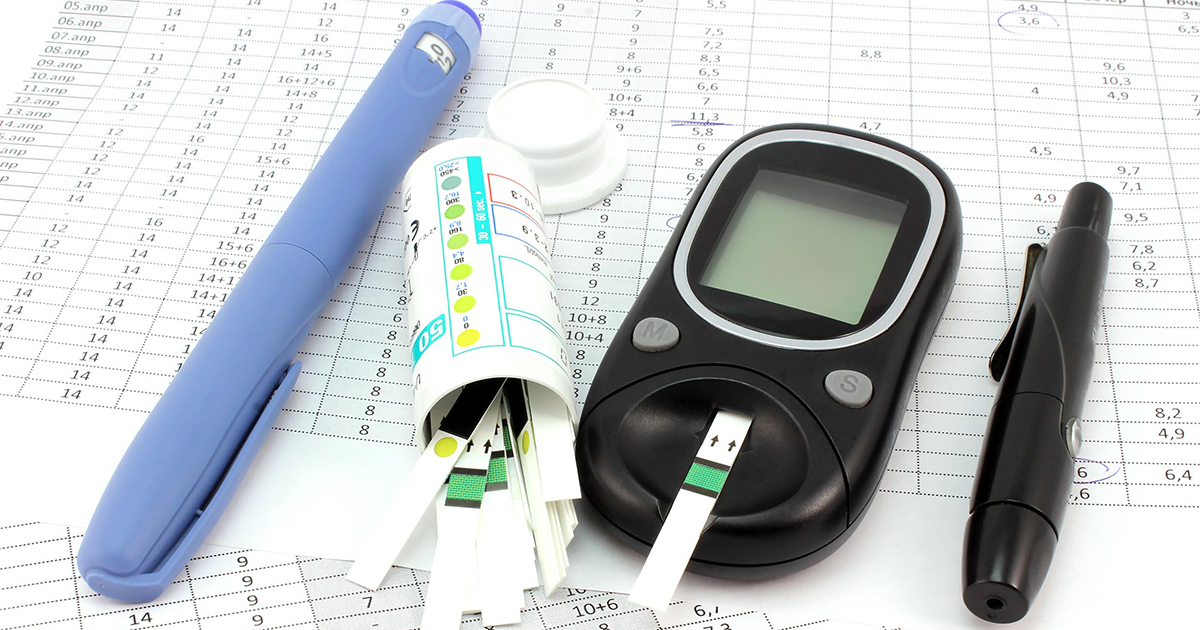One of the main areas of concern for those with diabetes is the effects that the disease can have on vision. Changes in blood glucose can affect vision. A short-term rise in blood glucose may cause some temporary blurred vision; but if left unchecked, major problems can develop.
Why Does Diabetes Affect Vision?
When your blood glucose changes, fluid levels within your body also change. An elevated blood glucose level will raise the fluid levels in the body, which in turn can cause swelling of the eye tissue, causing blurred vision. Once the glucose level is reduced, the fluid levels should return to normal, and vision should also normalize.
The bigger problems begin when blood glucose levels are sustained at higher levels, where the swelling begins to damage blood vessels; referred to as diabetic eye disease – where deeper, more permanent eye problems like diabetic retinopathy, diabetic macular edema, and glaucoma can occur. It even puts you at a higher risk of developing cataracts at a younger age.
What Are Some Of The Vision Problems Related To Diabetes?
One of the most common issues that individuals with diabetes have with their eyes is blurred vision. This is, as we mentioned earlier, directly related to fluid levels in the body due to changes in blood glucose. These changes can affect the blood vessels, tissues, and nerves in your eyes. Over time, these changes can cause permanent damage to your eyes with conditions such as diabetic macular edema, diabetic retinopathy, glaucoma, and cataracts.
Diabetic retinopathy is a condition caused by damage to the blood vessels in the lining of the back of the eye; the retina. In the early stages, a person may not notice any major vision changes or may see “floaters” or “streaks” in the field of vision. Later stages of the disease can cause major vision loss.
Diabetic macular edema is a secondary disease, occurring only in those with diabetic retinopathy already present. It refers to the accumulation of fluid in the part of the retina that is responsible for sharp, detailed vision, the macula. This fluid accumulation is due to diabetic retinopathy that has resulted in leaking or damaged blood vessels within the eye. This damage can cause blurred vision, double vision, floaters, and eventually blindness if left untreated.
Glaucoma and diabetes appear to be closely linked; individuals with diabetes are about twice as likely to develop glaucoma as non-diabetics – and similarly, those with glaucoma present are more likely to develop diabetes than those without the disease. Glaucoma is an increase in the internal pressure of the eye that over time causes damage to the optic nerve.
In the early stages, there are no real warning signs; most of the person’s range of vision and sharpness isn’t affected until later stages of the disease. If left untreated, loss of peripheral vision, and eventually total vision loss is possible.
Cataracts are a clouding of the lens of the eye, much like looking through a camera with a dirty or smudged lens, or a car windshield covered in pollen. In diabetic patients, these occur as a result of the increased blood sugar in the body. Cataracts are usually thought of as an “over 40” disease that develops slowly, but those with diabetes can develop them at any age and can go from clear to cloudy very rapidly.
How Can Diabetic Eye Problems Be Avoided?
Diabetes-related eye diseases are the primary cause of blindness in individuals ages 20-74. However, with proper management and regular eye exams, this doesn’t have to be the case. Controlling your blood sugar, maintaining healthy cholesterol and blood sugar levels, getting regular exercise and eating healthy can all help prevent diabetic eye diseases – however, the most important step to take towards keeping your sight is getting a regular, thorough eye exam.
According to the American Academy of Ophthalmology, 6 out of 10 diabetic patients are not getting their annual eye exams which could potentially save their sight. A yearly eye exam can prevent 95 percent of vision loss due to diabetes-related issues.
If you have diabetes and have been neglecting to get your annual vision checkup, schedule an appointment with Vision Quest Eyecare. We offer appointment times at two locations – Greenwood and East Indianapolis – for your convenience. Care for your eyes today to keep your sight for tomorrow!

Dr. Bantz is a general eyecare optometrist with a focus on ocular disease and contact lenses at VisionQuest Eyecare. A graduate of Indiana University’s School of Optometry, Dr. Bantz received his undergraduate degree from Butler University. He specializes in eyecare for patients of all ages, as well as contact lenses.

